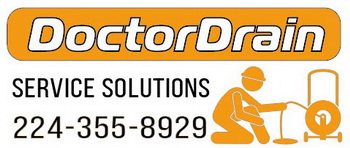Doctor Drain Services in Vernon Hills
-
Power Rodding
-
Hydro Jetting
-
Video Inspection
-
Drain Repair
-
Drain Cleaning
-
Sewer Cleaning
-
Sump pump
-
Sewage Ejector Pump
-
Main Line Rodding
-
Bathtub Drain
-
Bathroom Sinks
-
Kitchen Drain
-
Laundry Drain
-
Toilets
-
Floor Drain
-
Storm Drain

Vernon Hills is a suburb north of Chicago, Illinois in Lake County, Illinois, United States. The population was 26,850 at the 2020 census. Vernon Hills serves as a retail hub for its surrounding area (Libertyville, Lake Forest, Mundelein, Long Grove, Lincolnshire and Buffalo Grove).
The land that was to become Vernon Hills, founded by Richard Theodore Freese, Ron Freese, Nathan Kowitt, and Jim Carswell, began with the establishment of a 200-acre (0.81 km2) farm in 1857. Use of the land remained relatively static until the 1960s, when part of it was purchased for a residential community and golf course; the development was the first use of the name "Vernon Hills." On June 16, 1958, the village officially incorporated with 123 residents and 125 houses in a single subdivision built by Quinn Hogan and Barney Loeb. During these times, the village and police department were run from a local motel until 1971 when village trustees bought two portable buildings. It saw steady but slow growth until the annexing of a plot of land near the corner of IL-60 and IL-21 in 1971, which led to the building of 1,200,000-square-foot (110,000 m2) Hawthorn Center. By 1980, the village's population had grown to almost 10,000 residents, and by 2000, it had surpassed 20,000.
Through the 1980s and 1990s, the village grew geographically through the annexation of surrounding areas. This included land that would become the Corporate Woods business park and Centennial Crossing residential development (1986), a 1,200-a
As of the census of 2010, there were 20,120 people, 7,568 households, and 5,312 families residing in the village. The population density was 2,708.3 inhabitants per square mile (1,045.7/km2). There were 7,813 housing units at an average density of 1,051.7 per square mile (406.1/km2). The racial makeup of the village was 81.86% White, 1.69% African American, 11.67% Asian, 0.10% Native American, 0.03 Pacific Islander, 2.92% from other races, and 1.72% from two or more races. Hispanic or Latino of any race were 7.19% of the population.
There were 7,569 households, out of which 42.3% had children under the age of 18 living with them, 59.2% were married couples living together, 8.4% had a female householder with no husband present, and 29.8% were non-families. 24.8% of all households were made up of individuals, and 5.9% had someone living alone who was 65 years of age or older. The average household size was 2.66 and the average family size was 3.24.
In the village, the population was spread out, with 29.2% under the age of 18, 6.4% from 18 to 24, 36.8% from 25 to 44, 21.6% from 45 to 64, and 6.1% who were 65 years of age or older. The median age was 34 years. For every 100 females, there were 93.7 males. For every 100 females age 18 and over, there were 89.8 males.
The median income for a household in the village was $101,297, and the median income for a family was $123,806. Males had a median income of $94,807 versus $78,136 for females. The per capita income for the village was $72,219. About 0.9% of families and 1.2% of the population were below the poverty line, including 3.0% of those under the age of 18 and 6.8% of those ages 65 and older.
In 2011 Vernon Hills had 4,858 persons of Asian ancestry, 19.3% of the village's population, the sixth highest percentage of Asians of any Chicago suburb. The Asian population figure was more than twice that of 2001. John Kalmar, the village manager, said that despite the increase from 2001 to 2011, "We haven't seen a specific increase in Asian-oriented types of businesses, and I haven't noticed in any significant way changes in what businesses are carrying.

